My Interview With Art Berman
He is a petroleum geologist with a degree in Middle Eastern History, which gives him a widely different approach to researching the oil and gas markets.
He studies the complex factors that drive markets and prices and is a firm believer that oil is the base of the economy. Even though it is a very ignored and misunderstood topic he assures it's one of the principal or most relevant to take into account.
In this interview, Art and I discuss energy, and how money is only a claim on it, renewable energy, the fascinating history of oil, its prices, and the economy.
This a must-read interview where you’ll learn why oil is such an important resource and how it affects your daily life.
April average WTI price was lower than previous low in December 1998 in real dollars.
2020 price was $16.56 vs 1998 price of $17.76 in May 2020 dollars.#OOTT #oilandgas #oil #WTI #CrudeOil #fintwit #OPEC pic.twitter.com/D90mQGibxz— Art Berman (@aeberman12) June 15, 2020
Art Berman’s Background

George: It gives me a great deal of pleasure to bring someone to The Rebel Capitalist Show that I have a tremendous amount of respect for.
He's someone that I've really looked forward to talking to for a long time. He is an oil expert. His name is Art Berman.
Art, welcome to The Rebel Capitalist Show.
Art Berman: Well, glad to be here. Thanks for having me.
George: Absolutely. Now, for my viewers who might not know your backstory, can you get us up to speed there?
Art Berman: Sure. I'm a petroleum geologist. I have worked in the oil business for 40 plus years.
I've worked for a big major oil company for the first 20 and I've been an independent consultant ever since.
I do a fair amount of writing and speaking. It gets me in a lot of trouble, but it's kind of fun to put my ideas out there. So that's basically what I do.
But I'm not a pundit, I'm not an op-ed guy. I actually work in the business.
Most of my work is doing real exploration and production work and advising my clients who are all over the place, but a lot of them are in the financial sector, managed money, funds, but also an awful lot of, “Gee, should we take this prospect or should we pass on it?”
So economics, oil, gas, and money. As you know my fundamental tenet is oil is the economy. So it's difficult to be an oil guy and be ignorant of the economy and all of that stuff.
So I'm certainly not an economist, but compared to some geologists, I have a little bit more understanding.
How To Short The Oil Market
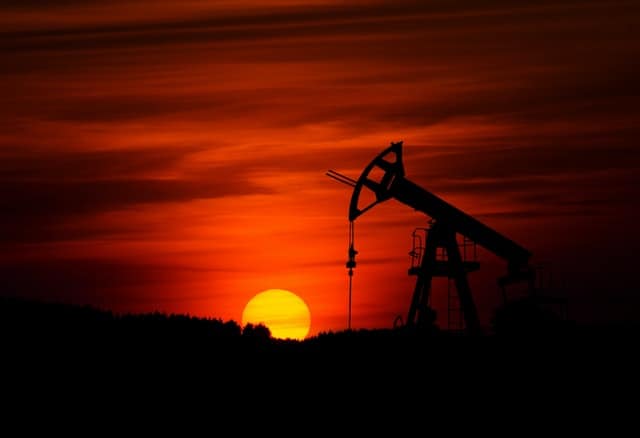
George: Yeah. I think you're pretty good when it comes to that area for sure. I first met you in 2019, January. We were both up at MacroVoices Live in Vancouver, Canada.
I remember you gave us a talk up there, maybe 10 or 15 minutes, or a presentation that was extremely fascinating. I don't know if you recall your presentation.
I was just wondering if you could give the viewers kind of a summary of that.
Art Berman: Right. So what I was doing at the time was providing some insight into basically how to short the oil market.
Now, I'm not a financial advisor and I'm not really even all that much into commodities, but I pay attention to them.
What I shared was the methodology that I use to understand oil and gas price formation. It's something that's called comparative inventory, I didn't invent it.
But it basically looks at where we are on storage compared to the five-year average, and then I cross plot that against price and develop what's called a yield curve.
Which really isn't all that different from a bond yield curve, except instead of looking at interest rates and maturities, you're looking at oil price and comparative inventory.
It's an incredibly powerful tool that most people are unaware of although you can find five-year averages in all published data.
People sort of understand the margins of it, but in any event, the importance … Like right now oil prices are super low.
According to my work, they're about $20 underpriced relative to this comparative inventory yield curve, and that's worth knowing, because what it says is that we are in an extreme price discovery excursion.
These happen more often than most people want to acknowledge. So if you know you're in one of those excursions, basically the only place for price to go is up.

Now, that doesn't mean it won't go down in the meantime, but with that kind of firm knowledge, it really helps you to understand where you want to be in this market if you're an investor or if you're just an economist.
I can look at oil consumption or demand and I can tell you a lot about where the global economy is going.
I can tell you that GDP, global GDP will be approximately 20% lower in 2020. I don't do any kind of fancy math or algorithms. I look at oil fundamentals because oil is the basis of the economy.
Actually I'm probably kind of in the middle. If you look at all the investment bank estimates, they range all the way up to 40%.
But point being that I'm in oil for most of your listeners, is probably not their principal interest or concern, but it in fact is.
It underlies (oil) everything in both our economy and really even in our society.
So they don't need to learn about it, but they can rely on people who do if they're inclined to use it as a measure or an indicator in their investment life.
Economy As A Proxy For Oil

George: Yeah. It reminds me of something that Jeff Snider said. He was another individual that was up at Macrovoices Live.
And he was using oil as a proxy, just like you're saying, because it's one of the very few things that the Fed can't manipulate the price to a certain extent.
They're in all these other markets, like the stock market, or the bond market, or the junk debt market, and they're really manipulating or trying to manipulate things, they're trying to put a floor on prices, but in the oil market, he was saying it's much more of a real type of price.
There's more price discovery, and that was kind of his angle. Do you see it that way as well?
Art Berman:
The only difference I would have with Jeffrey is I would say the economy is a proxy for oil instead of the other way around.
If you recall when we had the panel discussion on stage, of which both Jeff and I were a part of, I was the only person up there that wasn't an economist.
Oops. Maybe survivor's euphoria got a little ahead of itself? Perhaps Jay Powell doesn't gift the stock market with money (he doesn't have) after all? The Great Portnoy, rather than celebrate might now instead be the time to begin to survey the damage?https://t.co/wuKRcJs9ua
— Jeffrey P. Snider (@JeffSnider_EDU) June 15, 2020
George: Right. Well, Jeff technically isn't an economist either, but he knows 1000 times more than any economist. That's for sure.
Art Berman: That's true. I listened to everybody before I spoke intentionally, and then I gave them a good-natured hard time about how they had each summarized what they had spoken about and learned during the several days at that conference, and not one of them had mentioned oil in that summary.
To me, It's not really a criticism, It's an observation.
But the economists don't typically consider the availability and the cost of natural resources except as sort of a secondary kind of consideration, It's not primary in their analysis. Again, I'm not an economist nor am I criticizing them, I'm just saying that if you're looking for a reason why a lot of the economic forecasts don't work, I would suggest starting there.
George:
Why should the average person start with oil above and beyond the obvious?
Art Berman: Yeah, certainly.
Most people think the economy runs on money, and that's completely untrue. Every organism on earth relies on energy to live.
For humans, It's pretty basic. We need food to eat, so we can live, and we have to expend energy to get that food.
So in more primitive times, it was, “Hey, George. Getting a little low here on food supply. We better go out and hunt.”
So a bunch of us go out and we walk, and we run, and we shoot bows and arrows, or throw spears, or rocks, or whatever we have.
Basically we use up a lot of energy and hopefully we come back with a big kill so that we and our tribe, family can eat for a couple of weeks.
Transactions Are Not A Matter Of Money But Energy
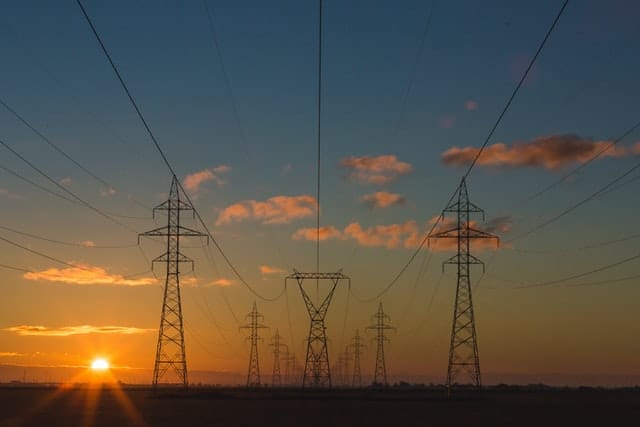
Art Berman: So the question is, in a subsistence society the energy output to go kill, and dress, and store, and eat the food is about equal to the energy input.
What happened as civilization developed is that we found ways of actually developing a surplus energy. So, agriculture.
We can have a long discussion about whether the agricultural revolution was on balance positive for humans or not, but it doesn't really matter. Agriculture allowed us to produce more than we needed.
So in that particular case then, because I got a barn full of grain, I may not want to do some work. And I'd say, “Hey, George. I need to dig a ditch.”
I'll tell you what, “If you do the work for me, I will pay you with a couple of bushels of grain.” But really the transaction is not in grain, It's in work. You do work, physical work, you expend calories or joules and I will give you in return something that replenishes your calorie or joules.
So fast forward to the present, money is nothing more than a claim on energy.
All of the financial investments that are made, the debt, and whatever, it's a claim on assets of some sort.
So when we go into debt … Personally, if I need to borrow money, basically, well, how do I pay the money back?
I pay the money back by my work. I expend calories and some of that may be just in my brain these days, but still, I do work, physical work of some sort to get money which is a proxy for work.
And I pay, If I borrowed from you, I pay you back in the money, but we're really transacting energy when you get right down to it.
George: That's fascinating because I always see it as we're transacting productivity.
But you're taking it a step even further saying you're actually talking about energy because without the energy, you can't have the productivity in the first place.
The Difference Between Price, Cost, And Value

Art Berman: I'm glad you brought that point up, because that's where I was going next.
So there's a lot of sources of energy in the world including just physical labor, or get a horse, or a cow, or an ox, or something and use its physical labor. But in our world today, the most productive source of energy is oil.
So a barrel of oil, if you convert it to kilocalories or some other form of energy and do all the calculation for how many days a week do I work, etcetera.
It works out to be at four and a half years of human labor in a barrel of oil.
Now, that's a huge bang for the buck. So a really important point that most people don't think about is what's the difference between price, cost, and value?
Most of us use them kind of interchangeably, but let's talk about a barrel of oil.
So the price of a barrel of oil today is about $25 roughly. The cost of a barrel of oil, which is what does it cost to actually get it out of the ground, is about $60 a barrel.
The value of a barrel of oil is the work that it contains. So if we say that the median income of an American worker is $26,000 in a year, then the value of a dollar barrel of oil is like $120,000.
So these three things; price, cost, and value are very, very different.
You cannot find any other source of energy that's got a multiple of $25 price to $120,000 value. That's why energy is the economy and oil is the most productive form of energy. Therefore, money is nothing more than a claim on oil, when we get right down to it, or some other form of less productive energy.
So when I hear people talk about, “Well, we're going to go to an all-renewable economy.”
“Hey, I'm all for it.” But let's understand that the bang for your buck, the energy density of solar or wind is a fraction of oil.
The value of the unit of energy produced from solar or wind is maybe 10% of what's in a barrel of oil.
So if you're good with that, if you're willing to run a society that has 90% lower productivity, if you want to think about it that way, that's just great. Let's do it. But it's going to be a poor world, a very poor world on 100% renewables.
Again, I'm all for renewables. I'm all for all energy. I'm just saying let's understand what you're really talking about here, because most people don't really understand what they're talking about here.
The Reason Why Renewable Energy Will Piss You Off

George: So let's just go ahead and piss off everyone that's watching this right now, Art, and just dive into the renewables.
Art Berman: Let's just do it.
George: So I guess the rebuttal from someone, it might be that's the technology as it exists right now.
But is there a possibility for technology to improve to the point where wind, solar, electricity in general, could be as efficient as oil or is it just physically not possible?
Art Berman:
Well, since we're going to piss people off, the answer is no, because technology doesn't create energy. All technology is, is a way to convert energy into work.
It's just that simple. Okay. So you can do whatever you want. Again, I'm a huge technology fan or freak.
All the work I do, I don't have a staff. I do it all myself. Well, how do I do that? Well, I use a lot of data, a lot of computers, a lot of computational power and maybe I'm fooling myself.
So I'm 100% one of the biggest fans of technology, but let's understand what it is and what it isn't.
You don't produce energy with technology. You convert energy into work with technology, and it's not free.
So you get better technology, we're talking to each other a couple of 1,000 miles away across the internet. Well, that's not free.

We're doing this on Skype, which doesn't cost you or I any money, but Skype is making money off this somehow. They're selling data. Okay. So there's a transaction that's going on here.
All of the electricity that's generated to do this and all the servers whether they're in the cloud, or wherever they are, it's a huge amount of energy that is being expended every moment so that we can have this conversation from the United States to where you are in Colombia.
You can ignore it, but you shouldn't because it's real. But, let's talk about oil again since that's what I know. Of course, you know the so-called Shale Revolution.
George: Yeah.
The Shale Revolution
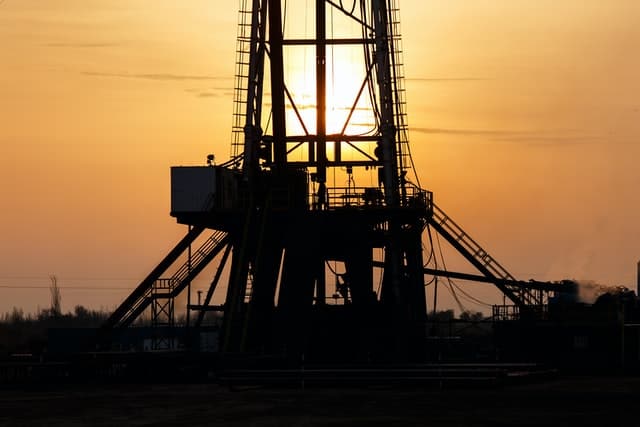
Art Berman: By the way, it's with us forever, It's important, It has tremendous value.
I've been a critic of its cost which I continue to be. It cost more than the price and that's very true today.
So as a business investment, it's not super, but that's another subject. But we talk about, “Well, it's all this technology.
It's a horizontal drilling and hydraulic fracturing. God, aren't we just amazing that we're doing all this stuff?” Yeah, but what does it cost?
If I drill a well in one of the Permian Basin or the Bakken Shale, or the Eagle, if I just draw a vertical well down to that formation and produce, it's going to cost me a million bucks or a million and a half bucks, something like that.
If I do all the fancy-schmancy technology, the horizontal drilling and hydraulic fracturing and all that, now we're talking about 10 million bucks.
So I better get a buzz from a seven to 10X increase in my investment. It better be spectacular, because the net present value of it just dropped 10 million bucks.
And I'm not getting any of that back until I get all this work done. If that well isn't 10 times better than a vertical well, I'm screwed.
So we treat this technology like it's cool, and it's free, but it's not. It never is.

George: Ironically enough like Tesla and Uber, it's only possible because the Fed has dropped interest rates to zero or almost zero for call it 10, 12 years.
So you have all this money out there that's chasing a return because they can't get it with a treasury.
So they go further, and further, and further out the risk curve to try to find some sort of yield, and that money ends up in Shale, it ends up in Tesla, it ends up in WeWork, these types of companies.
Art Berman: Fair enough, that's true. At the same time though, there are a lot of people who say, “Oh, well, Shale never would have happened if it weren't for easy money.”
And absolutely low-interest rates were an important factor, but the big factor, the elephant in the room, to use the cliche, was oil price.
It was the fact that oil price was over $100 a barrel in today's money for four years straight.
That's what really caused people to say, “Hey, we could probably do something at a price like that, that we couldn't do at a lower price.”
And why was oil $100 a barrel for all that time? And really since it goes farther back to 2004, 2005 is when the real price of oil started going up.
It's because the resource was getting scarcer. It's just real simple.
So markets are practical things. They're not perfect. They even make mistakes because markets are you and markets are me, we're just people and we get things wrong, but one thing markets get right is how to provide leverage.

If you want somebody to drill more oil, to figure out new technology, to get oil when you can't find it from ordinary means, boost the price and keep it higher for a while, and watch what happens.
Look at what's going on right now, the inverse. We have too much oil in the world. So we went from say $50 a barrel a month and a half ago, to actually negative prices three weeks ago.
Now, we've kind of worked our way back and we were celebrating, “Oh, my God. It's a rally. We're at 45 dollars.”
So we're celebrating that we've recovered back to half the value or half the price of oil a month and a half ago.
George: Right. Not only that we were celebrating because we got to half the price, but we're still, call it, $35 under the cost of production.
Art Berman: At least. Yeah. It's just absolutely nuts.
But the point of all this is a month ago, people were saying, “Oh, my God. Storage is going to get full because there's no place to put it, and they're just going to keep on producing, and producing, and producing because that's what they do.”
I publish charts every week and show, “Well, how much farther do we have to go until storage is full?”
I've said in interviews like this, I don't know. But we've never been full before. I'd be willing to put a 50/50 bet on the fact that we don't get there this time either. That's the way it's looking now.
How Did We Get Negative Oil Prices?
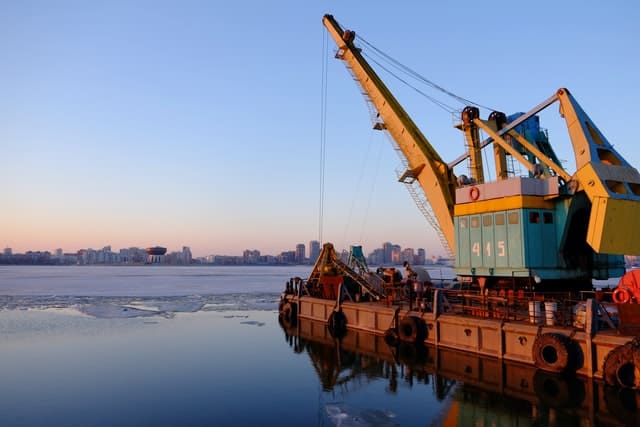
George:
So how did we get the negative 40 if there was capacity for storage?
Art Berman: Because it was leased.
George: All right.
Art Berman: You can reserve tickets to go see the Beatles or somebody at a concert, and you don't have to go, but somebody is waiting outside trying to get in and there are no tickets available, because you paid for the seats.
So all the storage is leased. Again, it got to negative 40 by, a kind of a technicality, a fluke of the way that futures markets work. Let's not bore everybody with that.
The point is that the market was sending the strongest signal possible to producers to shut this stuff down, man. Do you get it, yet?
Do you get that you're going to have to pay more than you could sell a barrel of oil for yesterday to make somebody take this? Is that strong enough for you? And guess what? It worked.
The rate of shutting in production has been breathtaking, the International Energy Agency just today said, “Oh, wow. We are so surprised at how quickly.”
That's because the people that staff and run these agencies, they're smart people, but hardly a one of them has ever worked in this business.
They're not geologists, geophysicists, or engineers, and they've never worked in the oil and gas business, so they don't know.
Or some people say, “Well, why is it so hard to shut-in a well?” Taking the other view. But that's because they don't get it.
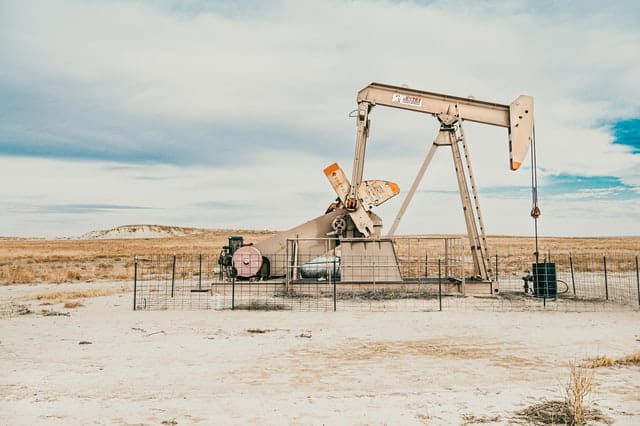
You drill a well and it's never just Art, that's drilling the well. I got partners, and I have obligations to my partners. I have an agreement, a contract.
Art Berman: If I want to shut-in a well, I got to send all my partners a letter. They got 30 days to respond and tell me if they agree. Usually, that's fine.
In this situation that was too slow, but the bottom line is markets are efficient, they're ruthlessly efficient. In fact, they typically short everything when they can. I think that US production will probably be less than six million barrels by the end of next month, and Max down from 13.
Oil’s Historic Norm And The Next Six Months

George:
What's the historic norm for the last five years?
Art Berman: Probably 10, 11 million.
George: Okay.
Art Berman: It's a huge drop and it's forced by the fact that if you produce the oil and you don't have storage lease, you're going to put it on the ground or you're going to pay somebody who does have storage lease to take it.
George: The bottom line there, Art, is you think that the reduction in supply for the next six months will definitely outpace the reduction in potential demand?
Art Berman: I don't know that. That's the bet that certainly OPEC is making, that's the bet that most analysts are making.
But if you look at their forecasts and do the hard work that I do, which I don't get paid any money for usually… Because I need to pay more attention to what the economy is, but most forecasters are saying that we're going to be at a supply or demand deficit by the end of this year.
Well, I won't say anything's impossible. I think that's improbable, but fair enough. So that's the bet.
The bet is that demands weigh down, and there's not a heck of a lot you can do about that other than waiting for things to start up and hoping that people go back to spending the way they did before, which they won't.
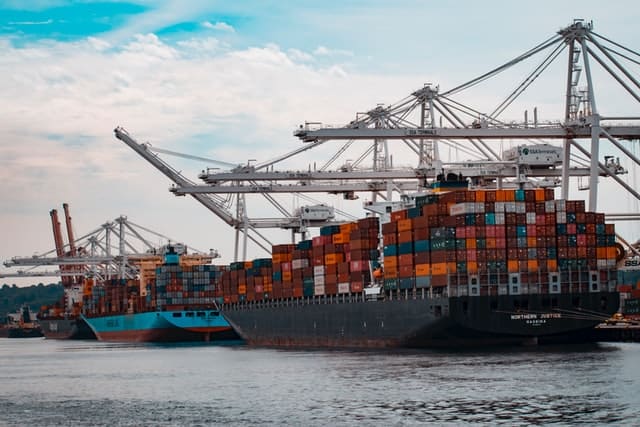
But that's another subject altogether. But it doesn't matter, markets don't really care. Markets don't care about supply, demand, the specifics.
They ultimately care about is there enough supply to meet the demand? They don't care what the number is.
If demand is down, 20 million barrels a day, as long as supply is down 20 million barrels a day markets are saying, “Hey, that's cool. We'll put the price back closer to where it ought to be.”
Not any closer than we have to because we're cheap bastards, but we will let the price increase back to something approaching whatever normal is.
The issue fundamentally is that people, humans, me, you, we always want to blame somebody. There has to be a reason for everything, and usually, if it's affecting me negatively, it's got to be some conspiracy or something like that.
And so, “Oh, it's the Saudis. They're bad, they're trying to hurt us. They're trying to kill the Shale business. How unpatriotic of them?”
Yeah. All of that stuff. I guess I take a much more simplistic view of it. Those are silly humans trying to explain things in ways that make them feel better.
The reality is much less interesting and a whole lot simpler too.
The reality is that the world has been on OPEC plus life support for four years. OPEC has been withholding one and a half to two million barrels a day from the market since late 2016. And we want to forget about that.
We want to say, “Oh, everything's great. Price is going to go to $70 or 75 as it did in late 2018. Isn't that just wonderful?”
And then somebody bombs the most important refinery in the world in Saudi Arabia, and three days later, the markets are yawning and saying, “Wow, why didn't price go up?”

Again, because markets aren't stupid. Those guys have been holding off 1.8 million barrels a day.
Multiply 1.8 million barrels a day times 365 days of the year, and you get billions of barrels. Hey, the supply is there, guys. We're just not all that worried about.
So people say, “Gosh, this is so weird.” Well, no. It's not weird. So we've got a market that's on life support, and the reality is that managed markets just don't work very well.
You could argue that free markets may not work all that well either, but managed markets … You can manage a market for a shorter period of time, as OPEC did right after the financial collapse in 2008, but you try to manage the market for four years and I promise you something's going to get screwed up.
Art Berman:
So we got a world that produces more oil than we need. That's the boring truth. It's not because of bad guys, It's not because of good guys. It's because of the fact that we're all in debt, because we borrowed as a civilization against future energy surplus.
We brought that supply forward into the future with something called debt, and the debt doesn't go away. It comes back and it burns us every time and that's the history.
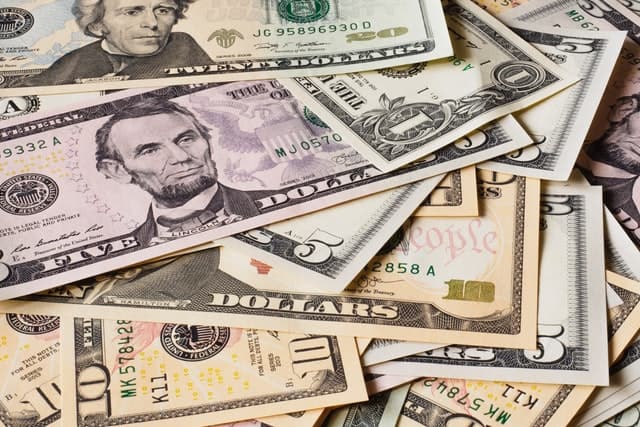
The history of the 20th century is that we ran out of surplus energy sometime in the 1970s or 1980s, and we figured out that debt was a really good way to pull that future surplus forward, pretend like we're producing it today, and party like it's 1999.
How Does Today’s Surplus Of Oil Work?

George: Can you unpack that a little bit? Because I think that's going to be a rather complex concept for most people to really digest quickly.
So you're saying that we ran out of excess supply back in the '80s, but we have fooled ourselves into thinking that everything is okay, because currently through debt, we're bringing future supply into the equation today.
So how does that work? I want to try to explain that to most people.
Art Berman: It's just like a loan.
I don't have enough money to finance my extravagant lifestyle, so I go to you and I say, “Hey, George. You're a rich guy.
Why don't you lend me the $100,000 that I need to buy myself a fancy car, and buy myself a fancy house, and take a few fancy vacations so that I feel like I'm living high off the proverbial hawk.”
Ordinarily, I would have to work my ass off for years, and years, and years to save the money to be able to do all those things, but I want them now.
So I'm going to pull those future consumptions of things, of air travel, and housing, and cars, I'm going to pull that from the future, all my future work that I'm not going to do now, I'm going to pull my consumption of all that into the present by borrowing money from you.

George: Yeah. Right. Yeah.
So these are oil producers instead of expanding through profits, they expanded through debt.
Art Berman: Correct. So it feels great. I'm going out of business like crazy, but it sure feels great.
We've been doing that as a civilization, but certainly in the United States, the lion of American presidents is Ronald Reagan. Ronald Reagan somehow delivered us.
He figured out how to take a crappy economy where inflation was going berserk and we had stagflation and all that kind of crap.
He didn't figure it out himself because he didn't know how to do it, but he had a guy named Paul Volcker, who was the chairman of the Federal Reserve, who said, “Well, we could raise interest rates to 18%.”
That as sure as hell killed inflation, and it sure as hell did. But not only that, but it made the United States Treasury the preferred asset of the universe.
Why in the world would you invest in anything if you could get 18% on a T-bond, for crying out loud? And that's what the world did.
The money just poured into the United States Treasury. We used all that money to buy a future, to bring forward our consumption.
So we were the guy who borrowed from George and got a Maserati, and a fancy house, and took a trip around the world, except at some point you got to pay it back theoretically.
 Very theoretically in the case of global economies, but that was the dilemma that the world faced in 2008. Basically, the invoice had come, and we didn't quite know what to do with it, and so we borrowed more. I'm not criticizing it at all.
Very theoretically in the case of global economies, but that was the dilemma that the world faced in 2008. Basically, the invoice had come, and we didn't quite know what to do with it, and so we borrowed more. I'm not criticizing it at all.
In fact, it fascinates me to watch all the right-wing and the left-wing economic camps and, boy, when things are going pretty well or not too badly, the more conservative economists.
They just love to bash good old John Maynard Keynes, but whenever there's a crisis, holy cow.
Art Berman: Oh, man. We're stimulating, and we're quantitatively easing, and we're printing money like its nobody's business.
Again, I'm not taking sides. I think it's really funny that we bash the guy relentlessly, but when we're in trouble he's like God.
We don't need God until I'm in a foxhole, and then I start praying. We pray to Keynes maybe he can help.
Is The Artificially Held Back Oil Affecting Our Economy?

George: Yeah. That's right. I think now they're taking it a step further with MMT.
They meaning the politicians and the political narrative. I think it was Keynes. Now it's just flat out to MMT helicopter money, or whatever you want to call it.
But going back to the oil topic, this is just so interesting. I'm trying to circle back to the last four years when you're saying that there's excess supply out there, that they're just not accessing to artificially propped up the price.
So we as the layman see the price of oil and say, “Well, the economy is probably not doing too bad.
Everything seems to be good because oil's up to near, call it 60, $70 a barrel. But they're not considering the fact that there's all this supply that could come onto the market that's being artificially held back.
So, is the result of that, that the economy just isn't doing as well as we think it is, or is it a result of the excessive debts you're talking about?
Art Berman:
Well, it's all of the above. Again. It all goes back to work. Whether the work is done in the present or borrowed from the future.

The point, I guess is that if you look at the period of say 60 or $65 oil using 2018 as an example. Well, how does that price compare to the price in, say 2000?
The answer is, it's about 40% higher in constant dollars.
So, if your underlying cost of doing business increases by 40%, what's the likelihood that your business is going to be okay?
George: I'm sorry to interrupt in here, but I just want to explain to the viewers.
Basically what you're saying is the economy or the person using it, this is a household type of balance sheet, they're over-indebted.
The fundamentals of the household balance sheet is not good, and you're just barely getting by even if you have a good job.
So once you get fired or you get laid off, now all of a sudden you've got big, big problems.
But the big problem isn't necessarily that you got laid off, the even bigger problem is that you had a horrible balance sheet, and you're fundamentally unsound, to begin with.
I think that's the analogy that you're using with the economy.
Yes, the virus is a problem, but the big problem is the underlying fundamentals of the economy are very poor especially when you look at the amount of debt that we have in the system.
Not only at the sovereign level, but at the state level, at the consumer level, at the corporate level. You look anywhere and debt is at all-time highs.
Art Berman: That's a perfect way to summarize. That's exactly the way I would have done.
The Price Of Oil In The Next 10 Years

George: I'll just ask a personal question here. I look at investing in five years, 10 years plus.
So for me, I'm really curious as to what the price of oil is doing, not necessarily in the next two weeks or the next two months, but the next 10 years. So what are your thoughts there?
Art Berman: Right. Excellent question, and the answer is, beats me.
Who knows the answers to those questions? But I'll speculate because that's what we're here to do. Hopefully, we don't piss off any more people than we already have.
George: My viewers are accustomed to me pissing them off very frequently.
Art Berman: I piss people off all the time and they take great offense at it, but I'm just trying to tell the truth as I see it.
George: That's right. That's what's important. That's right.
Art Berman: I'm not a contrarian. I don't dream up things to say that'll be controversial, I look at the data. If that's what the data tells me, that's what I say. It doesn't mean I'm right.
But so where's the oil going on? I think that it's very clear. It's clear to me that 2018 was probably …
I'd be shocked if we get back to oil production levels that we saw in the third, fourth quarter of 2018. I would be equally surprised if the economy of the United States or the world gets back to those levels.
So there are a lot of arguments that people make, “Well, we're not investing in oil, infrastructure. It's all about the present.
All these Shale wells they decline like gangbusters and that's going to come back and bite us in the ass.” Yeah, all that's true.
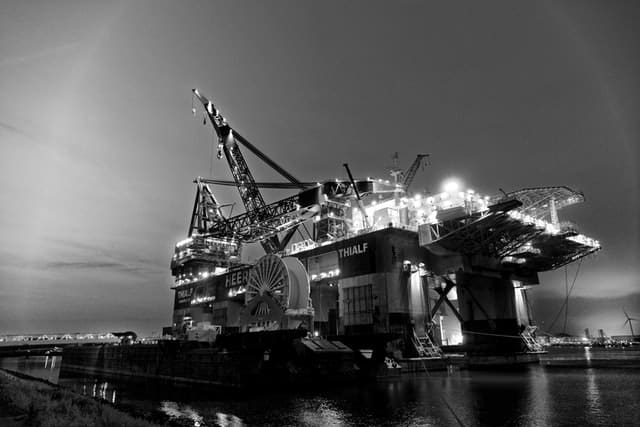
All that's absolutely true, but the other thing that's true is, “Yeah, man, but we got way too much oil.”
Without getting into why that is, let me say that somewhere out there in your time horizon of five or 10 years, there probably will not be as much oil, there probably won't be too much oil, let's put it that way.
If that's the case, then the price will go up.
If the price goes up even in a reasonably sound economy, that's difficult for the average person to make money. In a fragile economy that can be disastrous. So the long term picture, well, it's even the short term picture. If somebody asked me where the price of oil is going to go in the next six months or a year, I would say it's got only one place to go and that's up.
Now, sentiment and all sorts of other factors are going to create proverbial bumps in the road. It's not going to be a straight line.
While we're talking about it, I would be surprised if oil doesn't go back to sub $20 levels or even down to $10 at some point when people get really bummed out about how crappy the economy is.
We are humans, we have moods and market sentiment, and the price discovery that goes along with it is going to reflect that.
But I started out a while ago saying that the oil is underpriced by $20 roughly right now. Okay. So if that's the truth, then it's got to go up.
George:
But it still doesn't have to go to up to 75?

Art Berman: Oh, no. I think the correct price of oil, if there is such a thing based on comparative inventory, it's about $40 for WTI and about $45 for brand.
That is the balance between comparative inventory and price. And what I see there if you look at these yield curves, the curvature of the yield curve, and again for those of you that can't picture it, if you're looking at bonds you can imagine that.
If that yield curve is curved, then that means that a little bit of a change in something like interest rate can make a big change in the value at the end of the cycle.
If it's pretty flat then basically It doesn't matter. It's a safe investment, you're not going to lose any money, but you're probably not going to make any either. Where we are with oil right now is, we're on a super flat yield curve.
So people say to you, “Why did the price go down so fast and so far, farther than it's ever been in any kind of recent historical time?'
Because the yield curve got flat. You can pile up a mountain of storage beyond what we have today and the price doesn't go down hardly at all.
Or you can draw down a whole bunch of storage, and you go to the other side of the curve, and the price doesn't go up very much because the yield curve is flat.
So the point is that once we reach that yield curve, there's a big potential over the next year and a half or two, that if you go long on oil that you will win.

If you look at the stock prices of any of the major oil companies or major independent Chevron, Exxon, Conoco, Diamondback, Concho, EOG.
Those companies share price have appreciated something like 35% since a month ago because oil prices have gone up.
It's not rocket science that the share price of an oil company has a very good correlation to the price of oil. So that's something to think about.
In any scenario, we hear a lot about peak demand and all this kind of, what I consider to be sort of silly conversations, which has been a hot tub at the Esalen Institute or something like that.
It's like, “Really guys?” I mean, who cares. But, okay, that's a topic.
But the reality is that it's not about demand, It's not about supply if inventory is in the middle, really it's about energy and how that interacts with the economy and all those little pieces.
“Well, let's stop talking about oil. Let's talk about football.” “Oh, okay. Let's shift gears.” Well, you can do that on a matter of personal interest, but you can't do that about oil really.
You can stop talking about it, but the football game is seasoning or won't happen because the economy sucks, and there's a virus, and a lot of other things like that. So the problem with oil is that everything depends on it.
Art Berman:

So the future of oil price is good, the future oil cost is not good. It already has increased and we've squandered a tremendous amount of oil at terrible prices. We've basically dumped billions of barrels of oil produced from Shale onto a market that wasn't willing to pay us what it costs us.
George: Yeah. Future supply to your earlier point.
Art Berman: Exactly. So when we actually need the stuff, then the best stuff it's already been picked. So what's left is going to cost even more to extract.
So you want to go long on oil? Long on oil is a good bet, but be careful how you choose to go at it. So if you invest in an oil company that won't exist in six months, you need to think about that.
You want to put some money in Chevron, that's probably safe. Well, I mean, Scott Sheffield, who is not exactly my mentor, but sometimes he says the right thing.
He's the CEO of Pioneer Resources. He says, “There's only going to be 10 independence left by the end of 2020, 2021.” And that's because of what you said. The balance sheets.
These are companies that have huge debt, billions and billions of dollars. All or most of their production is either now shut-in or is going to be shut-in.
So they have no revenue. They have no means to pay their debt, they have no means to pay the interest.
That interest for some of those guys is two or three dollars a barrel. So if they can't pay their debt, then they got to go bankrupt at some point.
Maybe there'll be some forgiveness along the way, maybe they'll forgive it for a few months, but eventually, the creditors are going to say, “Look, guys. This is it.”
So in a normal scenario, you'd say, “Well, okay. That's too bad for XYZ company, but somebody else will buy them because it's a bargain.”

Well, not in this environment because Shell has cut its dividend. Chevron, Exxon, BP are going to pay their dividends for now.
They're being criticized by a lot of analysts for doing that because they don't have the money.
So when Exxon or Chevron announces, “Oh, well, we're going to go out and buy XYZ crappy independent oil company,” at pennies on the dollars, or, “By the way, we're going to take their five billion dollars or $10 billion in debt along the way.”
First of all, they don't have the money to do it. The shareholders are going to go berserk. We don't need any more oil, guys, and you don't have the money to buy somebody else's crappy balance sheet.
So I don't think that's going to happen. I may be wrong.
Will The Government Bailout The Oil Companies?

George:
Do you think the government is going to bail out the crappy balance sheet?
Art Berman:
How are they going to bail them out? Give them money? No. They're going to become the property of the government, just like General Motors effectively de facto was owned by the United States government in 2009.
Do you want to call it nationalized? Fine. You don't like that word? It sounds too much like socialism? Call it something else. I don't care. But that is what I think is going to happen.
George: Okay.
So you think these independents in the United States, a lot of these Shale producers will be bailed out?
Art Berman: They'll be words of the government.
George: Yeah. Right.
Art Berman:
Oil is way too important to fail if you will. That doesn't mean the corporate entity needs to continue to exist, but even politicians who don't have the attention span for something as complex as oil, and we've been talking now for a while, and I've tried to keep it simple, but it's obviously labyrinthine at best. Even they understand that there is some kind of relationship between productivity, global power, military power, and oil. They get that.
Oil, War, And History You Should Know…

The United States won World War II for a very simple reason. We had better access to petroleum than our enemies did, and Franklin Delano Roosevelt understood that message very clearly.
That's why as soon as he got done dividing up the world at Yalta with Churchill and Stalin, his next stop was an aircraft carrier in the Red Sea talk to the King of Saudi Arabia.
Most people don't know about that, but Roosevelt …
This was at a time when the United States was 1,000% oil independent, produced 50 to 60% of the oil supply in the world, and we had a president with enough vision in 1945, to say, “Wow, this could be a real problem for our power, for our economic strength. We need to secure our oil supply way into the future.”
George: Right. Because he saw how integral it was to the war?
Art Berman: We would have lost the war. The Germans, they were figuring out how to make oil from coal, for crying out loud, because they just sucked. They didn't have any oil.
Japan still doesn't have any oil. The whole reason the United States got into World War II was because Japan bombed Pearl Harbor. Why did they do it?
Because they wanted to take Indonesia, because Indonesia had oil.
And there was a treaty between the United States and Holland, and they were worried that, it's kind of silly when you think about it, that the United States might attack them for taking Indonesia.
So they figured it was a good idea to attack us first, which was good logic, I suppose. It's just really hard to extricate resources in general, and oil in particular from history, from world politics.
The British had a million troops in what's now Iran, before World War I. What were they doing there?
Why in the world were there a million British troops in Iran? Well, Germany was about to build a railroad from Berlin to Baghdad.

The thing that started, that triggered World War I, the assassination of some Archduke in Montenegro or something, what was that about?
Well, because those funny little Serbian states didn't want to give Germany a ride away to build their damn railroad.
And why did they want to build a railroad? Because they wanted to transport oil, for crying out loud.
So World War I, the trigger for it was right away on a railroad that would bring oil. And the British were anticipating and they had troops in the Middle East, and nobody knows this stuff. Okay. I'm not trying to say this is the singular cause of World War I, but it was certainly a cause.
Remember all those boats that the German submarines were sinking at the beginning of World War II? Remember that? Those were all carrying coal.
Art Berman: England was the Saudi Arabia of coal, and Germany was developing its coal industry because it was the new oil.
So you can keep turning the pages back, and back, and back, and what you'll realize is where we started this conversation, that energy is the economy.
And today the economy's energy is oil. In previous decades it was coal, it was wood before that, it was oxen and cattle before that.
Electricity As An Energy Source

George: Yeah. One thing I learned in a discussion with another hedge fund guy that I've got a ton of respect for is he said that the world, talking about coal in particular, and oil.
He was saying the world has never gone to a lesser dense energy source.
It's always gone to a denser. So like wood to coal, coal to oil, is that accurate? And then how would that play?
I promise this is the last question I'll ask you. I consider you've been extremely generous with your time. But how does that play?
If we're talking about electricity in the future being a less dense energy source than oil, If what he's saying is accurate, wouldn't that be the first time in world history that we've gone to a lower or less dense source of energy?
Art Berman: Well, of course, because your hedge fund buddy stole that quote from me. It's actually where he got it.
I've written that many times, I've stated it in many conferences.
George: It could be, because I'm sure he's a big fan of yours.
Art Berman: Imitation and flattery, and all of that, but yeah, of course. You look at human history and it's always been to a more productive form of energy.
That's just kind of makes sense, doesn't it? So now we're talking about how we want to go backward to sun and wind.

Again, I'm a big advocate. I'm a conservationist, I'm an environmentalist. I have been my whole life.
That's why I went to geology. I love the earth, I love the environment, but at the same time, I'm a pragmatic guy. Humans have never gone, ever, because it's dumb.
I mean, dumb in a genetic sense. Just a caveman kind of thing. “Should I do this or should I do that?” Well, that's dumb. I wouldn't want to do that. Do you want to do that?
Maybe because you have to. Okay. That's another discussion altogether. So, yeah. There're real implications.
So assuming we could just substitute the so-called renewable energy which is not renewable, it's rebuildable, which is different.
Energy is energy, and there's an infinite amount of energy in the world, in the universe.
We don't have access to it with all at a price that we can afford.

But, nonetheless, the bottom line is, if we could become a 100% renewable economy world, we would have a whole lot less productivity and, therefore, we'd be a lot poorer.
George: All right. We've got to choose. It's one or the other.
Art Berman: That may be a better thing for the world, and for humanity, and everything else, but you got to know that before you make that decision.
Unfortunately, everybody's promoting whatever they're selling. So we like to demonize the people that are touting the benefits of coal, or natural gas, or oil, and we want to imagine that those people that are promoting solar and wind that they're just all angelic.
Well, they're not. They're promoting their business in the same way.
They're promoting an absolutely false idea that your life is going to be just like it is now, except you won't be burning nasty fossil energy.
George: Well, it'll be better. A lot of it will be better.
Art Berman: Maybe better. It'll just be poor.
George: Well, I'm saying from their standpoint, that's what they're arguing.
The energy source is better, your life will be better, you'll be actually more productive and more efficient if we go on to this renewable. I think that's where the bottom line is.
But it's them arguing. I'm not saying that.
Art Berman:
The physics don't work, the math doesn't work. I've got a recent post on my website just a week ago or so, why the renewable rocket has failed to launch, and that's it, that's exactly it. You're being sold a story that you're going to be so pissed when you find out the ending to that story.
 You'll say, “Wait a minute. Who were those guys that told me my life was going to be just as good if not better?”
You'll say, “Wait a minute. Who were those guys that told me my life was going to be just as good if not better?”
Or It's like, “Who are the guys that created economy in 2008?” Well, none of them are in jail, right? You're pissed.
George:
For investors, the bottom line 10 years from now, you got to make a choice, or society has to make a choice.
Either you accept the fact that oil is going to be the main source of energy, therefore the price is most likely going up, or you've got to accept the fact that society is going to have a lower standard of living.
Art Berman: We may not have much of a choice in that matter. I read a lot of people right now saying, “What a great opportunity for green energy?
Oil's in the toilet and this is the time that we can really push forward, peak demand blah, blah, blah.
Again, read my post, I think exactly the opposite. I think that when people are hurting for cash, in a global depression, we're going to choose the cheapest, most available, most productive form of everything that we can.
A month ago, I might not have wanted to buy the store brand, you name it. Coffee, or toilet paper, or whatever, but if I can't get Charmin, hey, I'll take whatever toilet paper is out there.
And I might find out it's just as good, and it's a whole lot cheaper.
George: Yeah. That has exactly been my argument that I've had for coal and other energy moving forward. I understand the green argument, and I'm like, I don't really care for breathing bad air.
I don't like that any more than anyone else does, but from a political standpoint or a social standpoint, if we've got unemployment at 20 or 25%, the last thing the politicians and most of the individuals in society are going to be worrying about is green energy.
I'm not saying that's right or wrong. I'm just saying when you can't food on the table…You got a Maslow's hierarchy of needs there. I think that's what it boils down to.
Art Berman:
We're humans, and we haven't figured out how to change our real basic hunter-gatherers Savannah, emotional development. Until we do and we can make those intelligent choices, I think we're going to revert to the most basic, instinctual, genetic behavior that we can.
George: Yeah. A great example of that, Art, is just the United States compared to a country like Ecuador, or something like that.
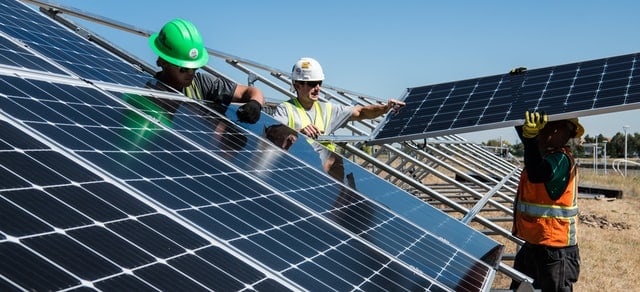
In Ecuador, that would never fly. Not just green energy, but a poor country, they have to have energy or they're not going to put food on the table. It's a talking point, it's right in their face.
They don't have the luxury of thinking about green energy. So my point is that the US standard of living goes down because we have a depression or something, that's going to be our priority as well.
I don't want to take up any more of your time, but I know you got to walk your dog. This has just been a fantastic conversation.
Man, I was really looking forward to it, but it exceeded even my most optimistic expectations. So thank you very much, Art.
For my viewers who want to find out more about what you do or your research, where can they go?
Art Berman: Artberman.com
That's my website. There's an awful lot of free content out there.
If you're interested in digging into some of the details, I've got some a whole array of subscription products that the most expensive one will cost you $50 a month, and most of them you can get one or two bundled for 20 bucks a month.
Some pretty big insights going on there. So that's artberman.com. I'm very active on Twitter @aeberman12. I draw up most of the important stuff out there.
George: There are a ton of charts too. I follow you on Twitter. Tons of really awesome, awesome charts.
Art Berman: But to understand them all and put them together, you may actually need to come to the website, maybe, depending on your need.
I mean, in the end, most of it is free, but for those that are serious about the insight and the understanding, the kind of thing we're discussing right now, it doesn't cost much.
George: Yeah, absolutely. I can't recommend it enough. All right, Art. I appreciate it. I can't wait to do it again.
Art Berman: Sounds great. Thank you very much. It's been fun.

